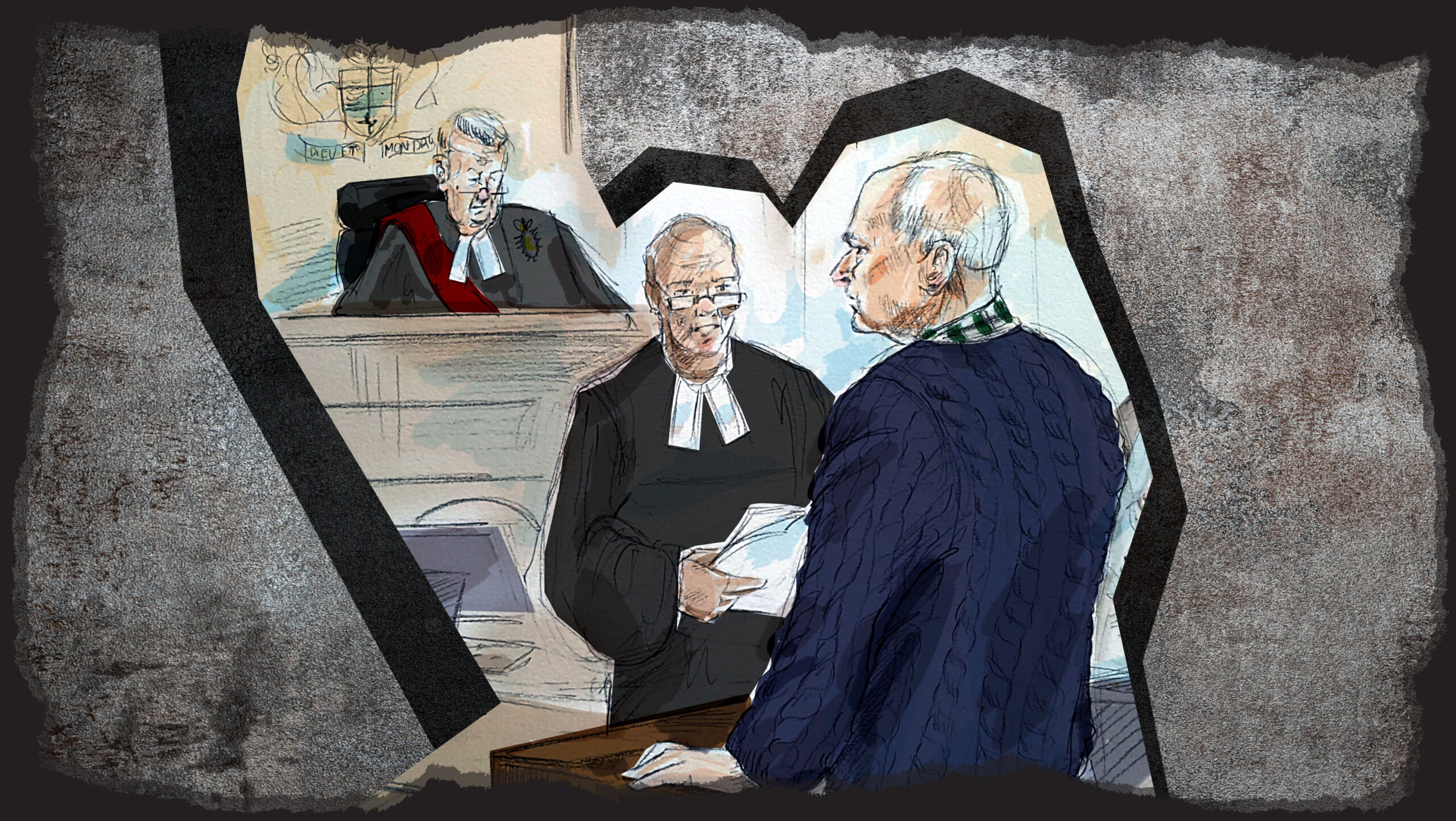Serial killer Bruce McArthur has been sentenced to life imprisonment with ineligibility of parole for 25 years.
He will serve eight concurrent life sentences in the deaths of Selim Esen, Andrew Kinsman, Majeed Kayhan, Dean Lisowick, Soroush Mahmudi, Skandaraj Navaratnam, Abdulbasir Faizi and Kirushna Kanagaratnam.
McArthur, 67, is also banned from owning weapons and will be placed on the sex offender registry for life. In addition, he will be asked to give a sample of his DNA for analysis and will not be allowed to contact the victims’ family directly or indirectly.
Addressing the Ontario Superior Court on Friday, Justice John McMahon called McArthur’s crimes “pure evil” and found little evidence that McArthur felt remorse. He also added that McArthur did not want to address the court.
While McMahon believed that 50 year parole ineligibility was “symbolic,” he said that McArthur’s age, and that he pleaded guilty to avoid a graphic and painful trial, were mitigating factors in deciding on a 25-year parole ineligibility.
McArthur pleaded guilty to all eight charges of first-degree murder last week.
The sentencing
At this week’s sentencing, Crown attorney Michael Cantlon affirmed LGBTQ2 communities’ fears that a serial killer had been preying on Toronto’s gay village. Cantlon went on to describe McArthur’s crimes, which went undiscovered despite his proximity to the victims and an interview with police during Project Houston, an investigation into missing gay men, in 2013.
Cantlon noted that McArthur preyed specifically on men on the margins of society: men who were not out to their families or felt they could not come out; men who had difficulties securing housing or were facing financial hardship; and men who were immigrants, predominantly of South Asian or Middle Eastern descent.
The sentencing also gave victims’ loved ones, family members, and friends, as well as members of LGBTQ2 communities, a chance to speak.
At McArthur’s sentencing hearing on Tuesday, the Crown asked that McArthur not be eligible for parole for 50 years — by which time he would be 116 years old. McArthur’s defence lawyer James Miglin, however, suggested 25 years of parole ineligibility would be appropriate given the serial killer’s age.
Response to the sentence
“The accused’s brutal killings have devasated the LGBTQ community. The community will never be the same,” Justice McMahon said on Friday. “However, there are harbingers that the LGBTQ community is both strong and resilient and will overcome this terrible chapter.”
In a statement from the Crown following court proceedings, it thanked police officers who helped on the prosecution of the case, and spoke about the impact of the crimes, calling it a “stark horror.” “Although there can be no closure from a crime of this magnitude, we hope that these eight convictions for first degree murder will assist our community in beginning a new chapter of healing.”
Friends and loved ones of the victims expressed upset over the sentence. Nicole Borthwick, a friend of Kinsman, Esen and Lisowick, told media she felt the sentence was inadequate. “It’s not enough for the families, it’s not enough for the lives lost and it’s so not enough for the community,” she said.
In a press conference following the sentencing, Toronto police Chief Mark Saunders thanked investigators on the case. “Our work is not done. We will continue to support the opportunity to explore our investigative efforts in a transparent and accountable way,” he said. “We’ll continue to cooperate.
Saunders also stood by his decision to state there wasn’t a serial killer one month before McArthur was arrested. “At that moment, when I made that statement, I was very, very specific with what I said because it was accurate and right,” he said.
How the case unfolded
For years, Toronto’s queer and trans communities called on police to investigate the suspicious disappearances of several men who frequented the Village. But it wasn’t until June 2017, when 49-year-old Kinsman was reported missing, that police began to unravel the case.
Despite this, police denied suggestions that a serial killer was targeting gay men.
But community fears were confirmed on Jan 18, 2018, when McArthur was arrested and charged with the deaths of Kinsman and Esen. The following month, McArthur was charged with additional counts of first-degree murder in the deaths of Navaratnam, Lisowick, Mahmudi and Kayhan. In April, two additional counts of first-degree murder, in the deaths of Faizi and Kanagaratnam, were added.
Police relations with McArthur prior to the case
Many LGBTQ2 activists remain upset with the handling of the case, calling for further reviews into how McArthur remained undetected for so long.
Last year, Toronto police launched an internal investigation into part of the McArthur case. This week, Sergeant Paul Gauthier, the police officer who investigated the 2016 case in which McArthur assaulted and strangled a man, faced charges of misconduct — charges that sources say stem from the 2018 probe.
According to the Toronto Star, Gauthier faces two counts of misconduct under Ontario’s Police Services Act, including insubordination and neglect of duty. The charges allege Gauthier failed to both videotape the victim’s statement and photograph the victim’s injuries within 72 hours, both of which are required by the Toronto police policy on domestic violence investigations, the Star reports.
A CBC report included an email that Gauthier sent to his colleagues on Wednesday. In the letter, he claims the Toronto Police Service has effectively set him up to be their “fall guy.” He also alleges that concerns about his investigation only surfaced after Chief Mark Saunders “embarrassed himself” said that members of the LGBTQ2 community could have come forward to police sooner with information about McArthur.
An external review set to explore the Toronto Police Service’s handling of missing persons cases and not just the McArthur case was launched in January by retired Ontario Justice Gloria Epstein. On Nov. 12, an online, anonymous survey was launched to “gather public input and perspectives” on how the police have handled missing persons cases. “The greater and the more varied the response to this survey, the better rooted our work will be in the views of our diverse communities,” Epstein said in a press release. The survey will be live until spring 2020, and results of the review are expected on or before January 31, 2021.
But Toronto Mayor John Tory and Premier Doug Ford have called for further investigations into police handling of McArthur’s case.
What’s next?
While McArthur’s sentencing will close the procedural aspect of his case, communities continue to mourn and heal. Many continue to grapple with the fear of his infiltration into Toronto’s LGBTQ2 communities. As one victim-impact statement, filed on behalf of Toronto’s South Asian and Middle Eastern LGBTQ population, read: “If there was one [killer] in our community, there could be others.” Others work to reclaim spaces tainted by McArthur’s presence.
McArthur’s likelihood, meanwhile, to receive parole in 2044, should he live until then, are “very remote at best,” McMahon said.
Legacy: November 12, 2019 11:08 amThis story has been updated to include new details about a review into police handling of missing persons cases.




 Why you can trust Xtra
Why you can trust Xtra


